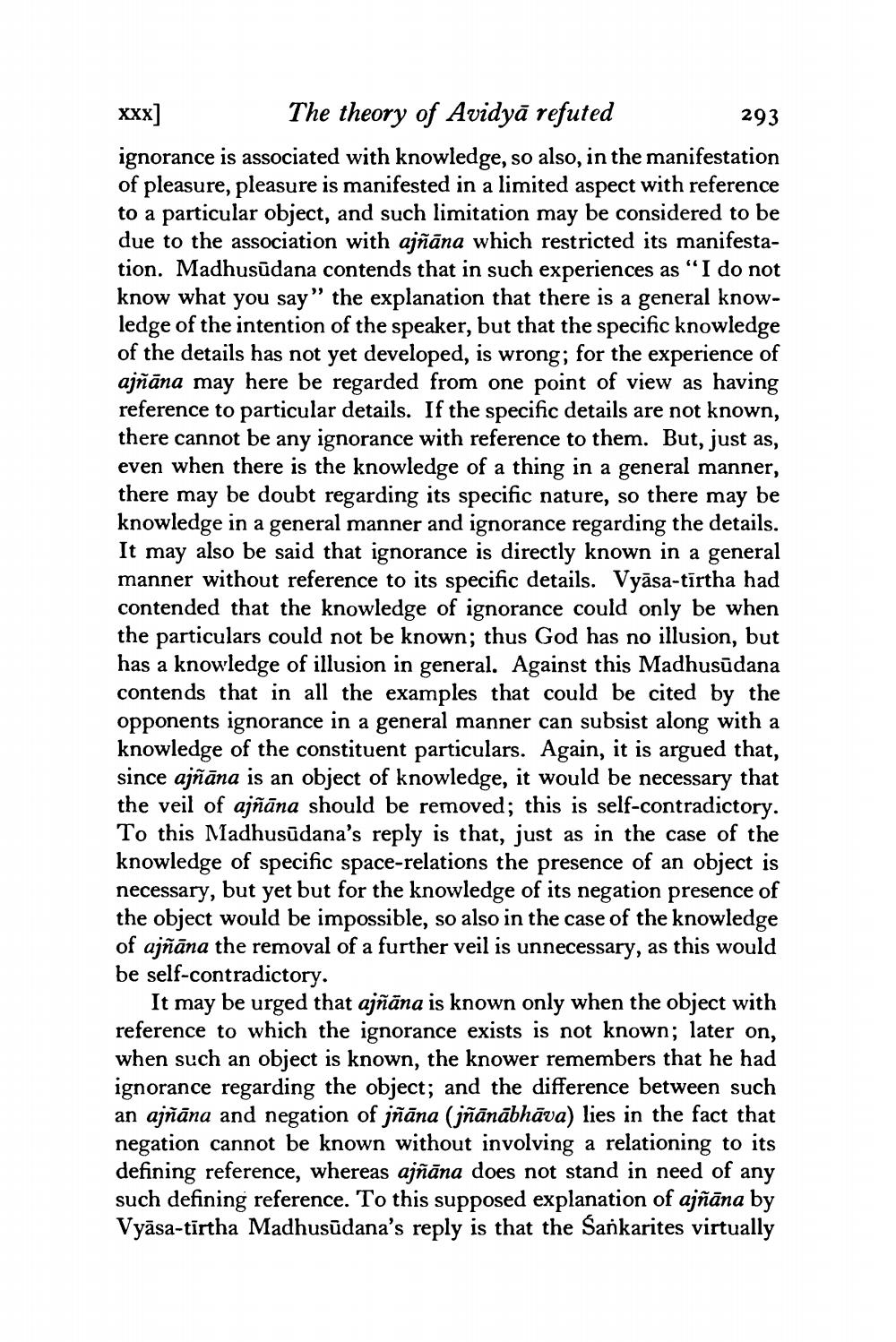________________
293
XXX
The theory of Avidyā refuted ignorance is associated with knowledge, so also, in the manifestation of pleasure, pleasure is manifested in a limited aspect with reference to a particular object, and such limitation may be considered to be due to the association with ajñāna which restricted its manifestation. Madhusudana contends that in such experiences as “I do not know what you say" the explanation that there is a general knowledge of the intention of the speaker, but that the specific knowledge of the details has not yet developed, is wrong; for the experience of ajñāna may here be regarded from one point of view as having reference to particular details. If the specific details are not known, there cannot be any ignorance with reference to them. But, just as, even when there is the knowledge of a thing in a general manner, there may be doubt regarding its specific nature, so there may be knowledge in a general manner and ignorance regarding the details. It may also be said that ignorance is directly known in a general manner without reference to its specific details. Vyāsa-tirtha had contended that the knowledge of ignorance could only be when the particulars could not be known; thus God has no illusion, but has a knowledge of illusion in general. Against this Madhusudana contends that in all the examples that could be cited by the opponents ignorance in a general manner can subsist along with a knowledge of the constituent particulars. Again, it is argued that, since ajñāna is an object of knowledge, it would be necessary that the veil of ajñāna should be removed; this is self-contradictory. To this Madhusūdana's reply is that, just as in the case of the knowledge of specific space-relations the presence of an object is necessary, but yet but for the knowledge of its negation presence of the object would be impossible, so also in the case of the knowledge of ajñāna the removal of a further veil is unnecessary, as this would be self-contradictory.
It may be urged that ajñāna is known only when the object with reference to which the ignorance exists is not known; later on, when such an object is known, the knower remembers that he had ignorance regarding the object; and the difference between such an ajñāna and negation of jñāna (jñānābhāva) lies in the fact that negation cannot be known without involving a relationing to its defining reference, whereas ajñāna does not stand in need of any such defining reference. To this supposed explanation of ajñāna by Vyāsa-tīrtha Madhusūdana's reply is that the Sankarites virtually




